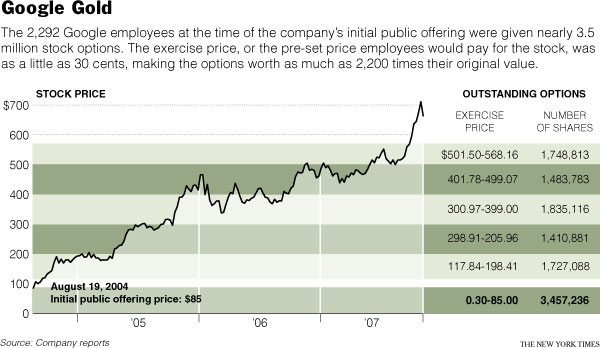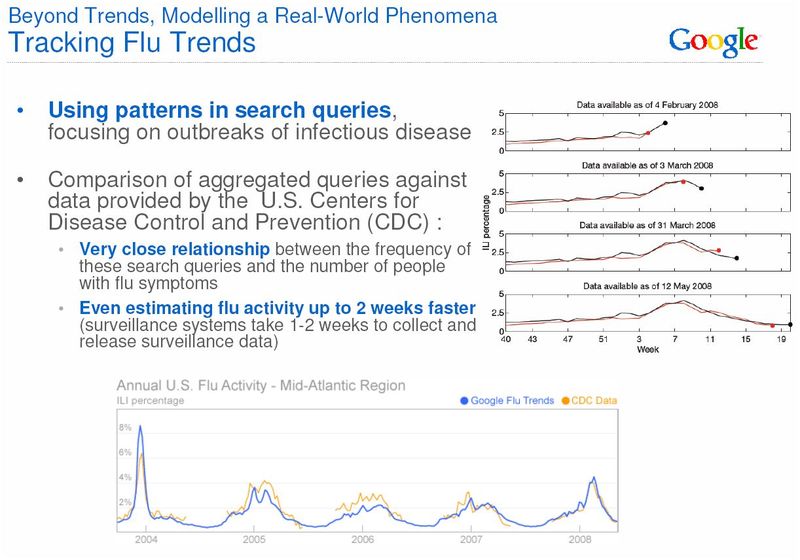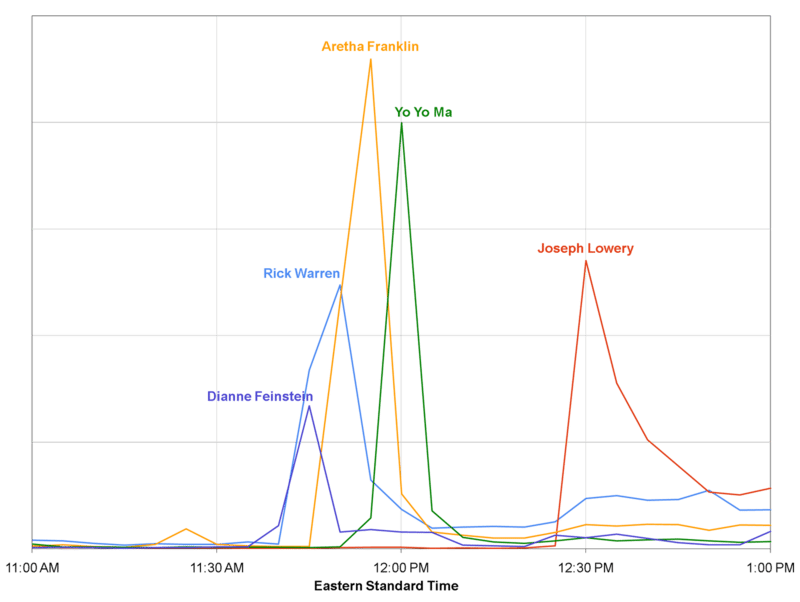
I now know why Google's staff are so rich and wealthy.
It's not down to their shares, which rocketed since the 2004 IPO:

because, like everyone else's, it's also tanked.
Google's stock peaked at the end of 2007 at over $700 per share and is now down at just under $400.
Result: there must be other ways of making money.
And yes, Google have found a way.
Live search analysis in real-time.
Using live search analysis, you can rapidly see market movements, issues and opportunities, often before it breaks on the news.
This is something I had forgotten that Nelson Mattos, Chief Google Engineer for Europe, mentioned during his presentation in February which I chaired. Now that I've got the slides, I was reminded of his words in respect to flu.
Here are the official USA Disease Control statistics for flu in the USA (not Swine Flu!) and the Google searches for same:

What this shows is that Google sees flu outbreaks by city, town and village based upon user searches often before doctors, hospitals and health authorities. The same would be true for other things, such as buying cars, as discussed in the Economist this week.
Similar live tracking of people's thoughts occurred during Barack Obama's inauguration speech based upon whoever was on stage:
What this means is that as news breaks about commodities, companies, countries and clients, you can short sell or hedge the news in real-time.
Before Bloomberg or Reuters tells you in some cases.
Wouldn't it be nice if you could have that sort of system?
Well you do!
It's called Twitter and using Monitter and Twitscoop, real-time news is available 24*7 to everyone ... and often before the media get it.
And if you're really interested in this, Health News compares real-time tracking of the swine flu outbreak between Twitter and Google to try and work out which one was more effective in pre-emptively spotting the issue.
Go figure.
Chris M Skinner
Chris Skinner is best known as an independent commentator on the financial markets through his blog, TheFinanser.com, as author of the bestselling book Digital Bank, and Chair of the European networking forum the Financial Services Club. He has been voted one of the most influential people in banking by The Financial Brand (as well as one of the best blogs), a FinTech Titan (Next Bank), one of the Fintech Leaders you need to follow (City AM, Deluxe and Jax Finance), as well as one of the Top 40 most influential people in financial technology by the Wall Street Journal's Financial News. To learn more click here...

